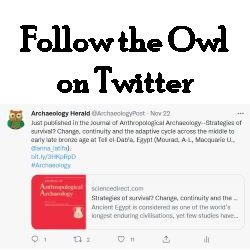Recommender systems are algorithms programmed to suggest to users what they are likely to enjoy based on what they’ve viewed or purchased in the past. Now, there is a recommendation system, a Netflix-like guide for research papers, thanks to a study by Tulane University mathematics student Julia Sterling and chemical engineering professor Matthew Montemore.
The two designed a system to help researchers gather and narrow down the scientific papers that are most relevant to their work.

“It is a tool that will generate the equivalent of Netflix recommendations for research papers,” said Montemore, the Robert and Gayle Longmire Early Career Professor in Chemical Engineering.
Their study “Combining Citation Network Information and Text Similarity for Research Article Recommender Systems” was published as a featured article in IEEE Access, an open-access journal by the Institute of Electrical and Electronics Engineers.
Montemore and Sterling launched the study because of the massive number of papers published annually in scientific journals and the complexity in narrowing down the ones that are most appropriate.
“For researchers, finding the articles relevant to their work can be very time-intensive,” he said. “Often researchers use search engines, but technical jargon makes this difficult. Generally, not all relevant papers are found. Instead, many irrelevant papers are found.”
He said the system is analogous to how a music streaming service like Spotify will recommend songs based on a curated playlist. Although it is available online, it is still in the development stage.
“Most previous recommender systems for papers base their recommendations on either a single paper or on a researcher’s entire library, which makes it difficult to locate papers for a particular research project,” Montemore said. “To make our recommendations, we used citations and text similarity to quantify relationships between papers.”
For example, keyword searching suffers from difficulties with synonyms and multiple meanings. Montemore and Sterling said their system uses both citation information and textual similarity of abstracts to provide a highly focused set of relevant results.
“The input to this system is a set of one or more related papers, and our system searches for papers that are closely related to the entire set,” Sterling said.
The study was supported by the High Performance Computing program of Technology Services at Tulane, the Honors Summer Research Program, the Robert and Gayle Longmire Professorship, and the Louisiana Board of Regents.




